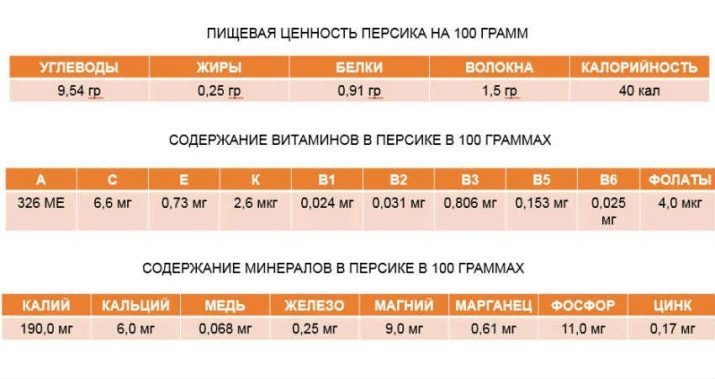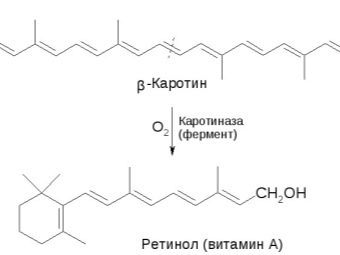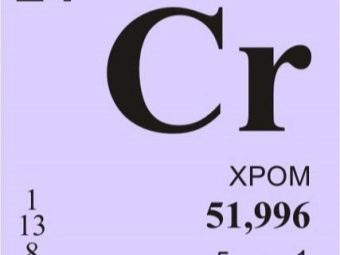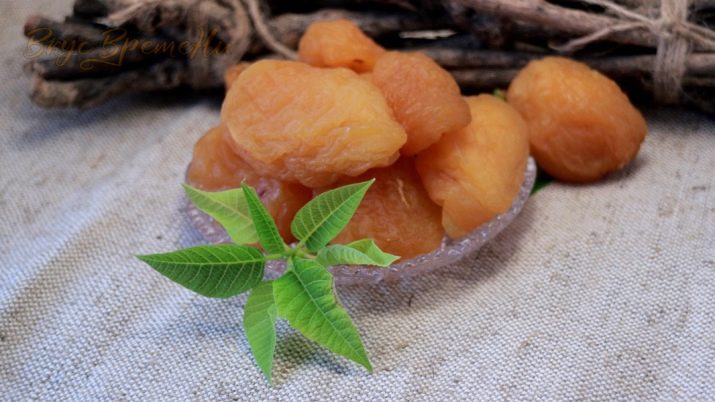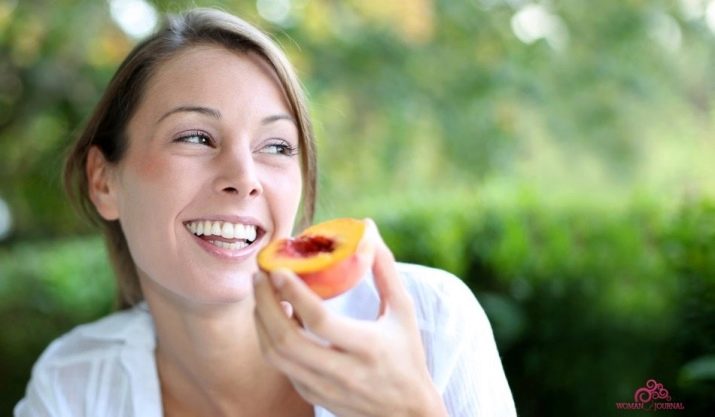Calories and nutritional value of peaches, the norms of consumption of fruit during weight loss
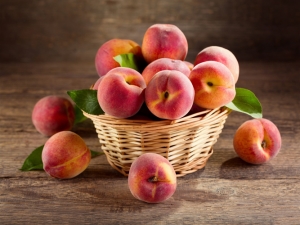
Peaches are the favorite fruit of many, but in recent decades healthy food trends have become increasingly fashionable, and what is tasty is not always useful. Even supposedly healthy food can cause harm if it is used inappropriately. It is believed that there are no products in the world that are allowed to be used by absolutely all categories, and peaches are no exception. That is why it is worth carefully to figure out how to include such a fruit in your own diet.
Chemical composition
The presentation of the chemical composition of most foods begins with an indicator such as BJU, that is, the balance of the main components present in any food. Most of all in this fruit is sugar, that is, carbohydrates - 9.5 grams, and proteins and fats are presented rather formally - they are here 0.9 and 0.1 grams, respectively. Do not be surprised at these numbers - this fruit is simply very juicy, and therefore the main mass of the mass is water: per 100 grams of peaches there is 86.1 grams of water. Separately, it is worth mentioning dietary fiber, which has 2.1 grams.
If we talk about vitamins and minerals that are rich in peach, then, as in any fruit, they are presented in large quantities, but unevenly. Each fruit is valued for its particular set of such substances, we will only select those components that are really a lot of peaches.
- Vitamin C. There is so much of this substance here that only 100 grams of this fruit covers about 10-12% of the daily needs of the human body. Due to the active promotion of vitamin C-based drugs in Soviet times, everyone knows about its functions - this component has a tremendous stimulating effect on the immune system, thanks to which the body is much more successful in resisting various diseases. In the summer, we get sick much less often, not so much because of the favorable weather conditions, but because of the abundance of vitamin C in peaches and other fresh fruits.
- Beta-carotene as a source of vitamin A and actually vitamin A. Interestingly, peach is richly represented not only in vitamin, but also in raw materials, from which even more of it can be obtained by biochemical means in the human body. Both of these components in 100 grams of fruit satisfy a daily requirement of about 10%. The substance in question plays an important role in various systems of the body, and it is especially customary to single out the value of vitamin A for vision — in its absence, the latter begins to decline. In different chemical varieties, the same vitamin is responsible for the growth and development of all organs, takes part in the formation of cell membranes and has an antioxidant effect, preventing aging.
With a lack of such a component in the diet, in addition to reducing vision, also weakening of the immune system and slow growth are also likely (especially in the case of children).
- Vitamin E. This component is relatively small - 7% of the daily rate per 100 grams of the product, but its deficiency is critical for humans. The main functions of the substance include antioxidant effects on the body and counteract the formation of blood clots, but with a catastrophic shortage of vitamin E, severe consequences can occur in the form of degeneration of nerve cells, weakness of bones and smooth muscles, atrophy of the reproductive system, and an increased likelihood of some diseases, such as cancer.
- Silicon. That's what the peach is most valuable - only 300 grams of this fruit will completely close the daily need for this mineral.
In the human body it is always present only 1 gram, but its value is difficult to overestimate, since it is necessary for the elasticity of blood vessels and contributes to the absorption of a number of other trace elements.
- Chromium. This substance is also rich in peach - out of 100 grams of product a person can get 25-30% of the required amount.There are many possible uses for such a mineral, but it is especially appreciated that it plays a crucial role in the process of stabilizing blood sugar levels. It is not a fact that it is necessary (and possible) to receive it from peaches, but an acute need for it is typical for all people who have metabolic problems. Experts also argue that, if necessary, chromium can replace the lack of iodine for the body.
- Potassium. It is proved that this component in the human body works ideally only in combination with sodium and magnesium, which the peach is not so rich in, but potassium in it is about 13-15% of the daily value per 100 grams of weight. The use of this macrocell is best known for maintaining the normal functioning of the heart muscle, but in fact its functions are much wider - in particular, it is necessary for the normal functioning of the liver and kidneys, as well as the nervous system.
This list of useful components of the peach does not end there, it just can not be called the main source of other vitamins and minerals in a person’s daily menu.
Glycemic index
For diabetics only fruit and act as a possible dessert, and even then not all - you have to constantly monitor that there were no sharp jumps in blood sugar levels. Most patients would most likely think that sweet peach is contraindicated for them, however, the situation is just the opposite - the fruit has a low glycemic index (30) and is even recommended for people with diabetes.
This is explained quite simply. First, the peach does not contain the so-called fast carbohydrates, because its absorption by the body is stretched in time and does not provoke a sharp jump in blood glucose. Secondly, there is a significant amount of chromium, which helps regulate the level of sugar in the blood instead of the missing or "not working" insulin.
That is why Most nutritionists do not prohibit peaches with diabetes, but even recommend them. - in particular, for the sake of obtaining the same chromium. Despite the fact that this fruit is among the ten most useful fruits for diabetics, you should not abuse them anyway, because there is quite a lot of sugar, although it is slowly digested.
For a person with diabetes, the daily allowance is only one fruit per day.
Nutrition and energy value
Following healthy nutrition is impossible without an understanding of the caloric content of all the products included in the diet, it is also extremely important to maintain the balance of BJU. About BZHU 100 grams of fresh product has already been mentioned above, it remains to add that about 45 kcal is the same weight - that is, peaches, as it should be for fruits, are not particularly high in calories. At the same time, it is more convenient for many consumers to focus not so much on weight as on the number of pieces.
The caloric content of a peach depends heavily on the weight of the fruit, because it can radically differ in size. There are averaged numbers according to which each fruit contains about 7.9 grams of carbohydrates, 0.73 grams of protein, and 0.1 grams of fat; as for calories, then 1 pc. energy of about 37 kcal. In practice, these figures may be far from reality, so be careful.
Naturally, in the process of cooking these figures may also change. So, canned peaches, for example, candied fruits may contain far less water, but to be flavored with additional sugar. Exact figures, of course, depend on a specific recipe, however, average figures go over the Internet, according to which per 100 grams of such a product there are 0.27 grams of proteins, 0.12 grams of fat and 14.6 grams of carbohydrates. Calorie also slightly increased - up to 67.7 kcal.
Dried peach is even more calorie - the water in it is very small, and without it, the proportions look completely different.Such a product will not turn the language called dietary, because every 100 grams contains almost 58 grams of carbohydrates (as well as 3 grams of protein and 0.4 grams of fat), because such a dessert is definitely contraindicated for diabetics. Calorie also shows high rates and is 253 kcal, because the delicacy is dangerous for the figure.
If the season of fresh peaches is long over, and you want to feel the bright fruit taste in a product that has not undergone heat treatment, but so that the figure does not suffer much, you can try dried fruit. Such a delicacy option will still have to be searched, besides, it is noticeably "heavier" than fresh, however, compared to dried one, it can even be called dietary. It contains about half the components of BJU, rather than dried, namely 1.5 grams of protein, 0.3 grams of fat and 31 grams of carbohydrates. The same proportion applies to caloric content - an average of 142 kcal per 100 grams.
Benefit and harm
Peach has a multifaceted impact on health - it can bring both benefit and harm, and this applies equally to all the above-described options for its use. Perhaps, it’s worth starting with a good one — no wonder that this fruit is considered very useful.
- Cellulose and pectin - Popular ingredients for many types of plant foods. Their special value lies in the fact that they not only contribute to the proper digestion of food and the balance of microorganisms in the stomach and intestines, but also have some healing properties. That is why nutritionists advise not to limit your diet exclusively to food of animal origin, and peaches are no exception.
- This fruit is literally overflowing with various components aimed at removing from the body of all the excess that can be. Thus, the same fiber helps to remove slags from the gastrointestinal tract, and various vitamins that are present in the chemical composition of the fetus, contribute to the elimination of antioxidants. A well-cleansed body feels much better, and a person who eats properly literally is getting younger.
- Fruit pulp is considered an indispensable ingredient for a variety of cosmetic creams and masks., and from the stone make an essential oil, characterized by use in a similar field. All this testifies to the fact that the composition of the peach is richly represented by substances that have a positive effect on the health of the skin, but you can get them without cosmetics just by eating fruit. Of course, to achieve a similar result in this way, the fruits should become an integral part of the diet.
- Like many other types of plant food, peach digests rather quickly and is eliminated from the bodytherefore, such food will never cause constipation. If a person has constipation with an unenviable frequency, he should increase the amount of vegetable food in his own menu. And although not all vegetables and fruits are suitable for the role of laxative, peach will cope with this task very gently.
- Also this fruit is simply very rich in various vitamins and minerals so necessary to the various systems of the body for proper functioning. It is not surprising that the peach is able to quickly restore the lack of various vital components, because it is often “prescribed” for vitamin deficiency or for the speedy recovery of the body after an illness or surgery.
But do not think that such a fruit is useful for all people without exception. Absolutely harmless food does not exist in nature, therefore there will always be those for whom the use of peach is undesirable or even contraindicated.
- Peach is not the sweetest fruit, in connection with which it is even allowed to diabetics, however, one should not think that there is no sugar at all or it is harmless.With a limited use of harm, there really will be no harm, but the abuse of these fruits and a sedentary lifestyle can theoretically even lead to a weight gain. The same diabetics, despite their benefits, are advised to eat no more than one fresh fruit per day, and canned, dried and dried fruits are strictly prohibited to use.
- Scientists have noticed that the components present in the peach, are able to give a pronounced stimulating effect. In most cases, this is only a plus, because the fruit helps to cheer up and solve different problems with double energy, but because of this property, these fruits are contraindicated for people with various mental disorders. It is believed that in this situation, the final effect may be unpredictable.
- Peach allergy is not as common, but it is not a rarity either. Its peculiarity is that, without being diagnosed never before, it can manifest itself at certain moments - for example, after pregnancy, at the breastfeeding stage.
- Since peaches have a certain laxative effect, in chronic diarrhea, they, like many other fruits and vegetables, are advised to be excluded from the diet. Although this fruit can not be called literally laxative, in conditions and so impaired stool, it can significantly aggravate the situation.
- Peach is a fruit with characteristic sourness, from which it can already be concluded that it contains acid. Such a component will certainly increase the total acidity of the stomach, and in fact, when this indicator is already elevated, this can result in an attack of acute pain. It is extremely undesirable to increase the level of acidity of the stomach also to those patients in whom it is generally normal, but gastritis or peptic ulcer is observed.
Weight loss
Peaches or fresh juice from these fruits can be used as part of various weight loss diets - this is facilitated by the noticeable cleaning effect of the fruit components. An organism devoid of toxins and toxins, with a well-functioning metabolism, is somewhat prone to self-regulation, therefore, it is not necessary to even eat this fruit every day — it is usually enough to clean it, and in the future just try not to repeat previous mistakes in nutrition planning.
The proposed program in a sense reminds not even a diet, but simply fasting days, since it usually lasts only 2-3 days.
The calorie intake of the daily diet in the program presented will be quite small - at a level of only 1100-1200 kcal, however, the compilers note that for weight loss, even during the course of unloading, it is undesirable to abandon minimal exercise. The menu can be quite poor for certain vitamins or minerals, because this deficiency should be compensated by tableted analogues.
The principal point is to comply with the volume of drinking in the amount of one and a half liters per day - otherwise it will be impossible for toxins to leave the body.
In the proposed menu, the number of peaches is indicated in accordance with the average weight of this fruit without a stone, which is estimated at 85 grams. Nutritionists, by the way, recommend choosing fruits of moderate maturity, which would have a rather dense structure, but over-ripe fruits, literally flowing hands, should not be chosen. So, the diet for the fasting day will look something like this.
- For breakfast - any cereal flakes in the amount of three tablespoons, divorced домашнего cup homemade yogurt or kefir. Sweeteners in this breakfast can not be added, but instead they need to add chopped peach medium size.
- Lunch consists of almost one peach, but now two. Add snack can be bran (tablespoon), and drink it with plain water.
- Dinner even during the diet remains the main meal, it is necessary to eat more than ever before. The authors of the download offer to arrange it in the form of a mixture of dairy products and fruits.First you need to mix half a cup of yogurt or kefir with 150 grams of light cheese with a fat content of not more than 4%. The fruit component is prepared separately - different fruits, among which are kiwi, mandarin, apple and, of course, peach, cut into slices of any size and shape. All this is mixed, but again without the use of any extraneous sweeteners.
- In afternoon tea, as well as for lunch, it is proposed to eat two peaches, but you can drink something more interesting than water - for example, kefir with spices (half a teaspoon of cinnamon and half as much ginger).
- Completes the fasting day pretty modest dinner - In half a cup of light (no more than 2% fat) cottage cheese add a tablespoon of bran, peach is also crushed there.
Total per day you need to eat seven peaches, so be careful: if you have contraindications or reasons for which the abuse of this fruit is undesirable, it is better to look for an alternative method for losing weight.
For more information about peaches in the next issue of the program "Live is great!".


